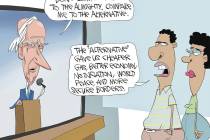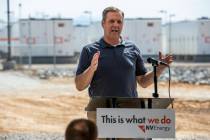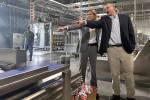Clunk, clunk
In addition to kick-starting depressed auto sales, the other stated goal of this summer's $3 billion federal "Cash for Clunkers" program was to help the environment by scrapping old beaters and putting more fuel-efficient cars on the road.
But the most common deals under the scheme ended up replacing old Ford or Chevy pickups with new ones that got only marginally better gas mileage, according to an analysis of new federal data acquired by The Associated Press.
The single most common swap -- which occurred more than 8,200 times -- involved Ford 150 pickup owners who took advantage of a government rebate to trade in their old trucks for new Ford 150s.
The fuel economy for the new trucks ranged from 15 mpg to 17 mpg, an improvement of just 1 mpg to 3 mpg over the turned-in "clunkers," The AP found.
In scores of deals, the government reported spending a total of $562,500 in tax money for new cars and trucks that got worse or the same mileage as the trade-ins -- in apparent violation of the program's requirements. The government says it's investigating those reports.
The new data, obtained by The AP under the Freedom of Information Act, include details of 677,081 clunker trade-ins processed by the government through Oct. 16. More than 95,000 of the new vehicles purchased under the program -- about one in seven -- got less than 20 mpg, according to the data.
"If we're looking for the environmental story here, we're going to be disappointed," said Jeremy Anwyl, chief executive at Edmunds.com, an analyst firm. "It might have started out from the perspective of improving the environment, but it got detoured as a way to stimulate the economy."
What did the taxpayers who paid the $3 billion in taxes get?
Recall that even the minimal environmental "gains" credited to transactions where the new vehicle gets somewhat better mileage have to be weighed against the fact that, under terms of the government subsidy, dealers were supposed to take the traded-in vehicles and run them with toxic chemicals in their radiators till they seized up, thus reducing those engines to scrap.
If those vehicles are now replaced on our roads by new vehicles -- albeit marginally cleaner ones -- doesn't that require new iron ore to be mined, transported and turned into steel in steel mills, somewhere? Don't all those procedures inevitably generate new pollution and other environmental costs?
How can destroying perfectly good trucks and cars that many would have loved to buy at used car prices -- in order to "bail out the auto industry" and those who can afford fancy new trucks -- make any more sense than slaughtering livestock and pouring tons of milk on the ground in order to "prop up" food prices?
Common sense tells us both examples of wanton destruction are just plain nuts. Some might even say they're a sin.























